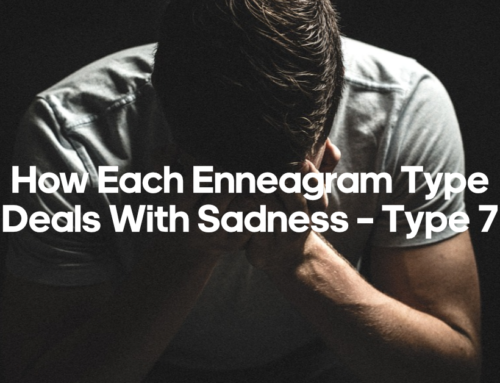Strong and assertive, Type 8s are the kind of people you simply wouldn’t miss. Also called The Challenger in the Enneagram, they would not hesitate to voice out their concerns or confront someone. They exude confidence and always want to be in control. At their best, they use their power to protect others and bring out others’ strengths.
For a low-mastery Type 8, they may become intimidating and ruthless in controlling the situation and getting what they want. When they’re in this state, people may fear and resent them.
In my years of coaching and teaching the Enneagram, I’ve only met a few Type 8 compared to Types 9, 5, or 6, which seems to be the dominant types in here in Singapore. For this series, I decided to interview this Type 8 agency leader who has a sense of calmness in his tone and presence. He’s someone who has used his power and influence to build-up and help other people.
- Refrain from being in denial
Type 8’s basic desire is to be in control of their external and internal environment. They deny vulnerability and overcompensate by exerting power to control what’s happening. They are very decisive and likes to take matters in their own hands.
In times of stress, he noticed how it works its way through his body– it manifests in forms of rapid heartbeat or high blood pressure. This is his warning sign that he had to stopped being in denial, which is the Type 8s defence mechanism. Denial is when they negate everything that makes them anxious. This includes feelings, thoughts, sensations, and parts of reality that 8s feel uncomfortable with. They don’t like being vulnerable as they think it is a form of weakness.
When he was in his early 20’s, he wanted to be seen as someone strong and powerful. Showing his vulnerable side was not an option for him as he sees it as being weak and not having a good standing. But as he mature, he realised that showing vulnerability bridges the relationship and at the end of the day we’re all humans having our own weaknesses. Type 8s appreciate honesty first and foremost, and to him, to be authentic is to be vulnerable. Now as an agency leader, he’s able to show his vulnerable side to his subordinates which created a better working environment, and he noticed he’s able to relate and support his agents better.
- It’s good to pause
Type 8 is part of the Body Triad, which is associated with the core emotion of anger. Comparing all the types in the body triad- 9s underplay anger by exerting power passively, 1s are in conflict with their anger as they think it’s bad, while 8s have easy access to angry energy and never hesitate to express it. They often move impulsively to express their anger before giving themselves time to think.
He confessed that he still struggles with controlling his anger from time to time. He gets easily frustrated when people are moving slow and are being indecisive. In the beginning, he would have no qualms in expressing his anger when things are not working according to his plans.
After knowing the Enneagram, he learned that his anger can deeply affect other people — making them feel uncomfortable and scared, which can severely damage the relationship. He realised how important it is to pause, refrain himself from being reactive and think things through and get in touch with his feelings. He has also been tapping into his Type 2 traits (which is Type 8s’ growth) because he deeply values the relationships he has. He puts conscious effort to be more sensitive and helpful towards others. He knows that if he gives in to his reactive tendencies that it’ll severely damage relationships.
- Hone your ability to relate and empathise
For lower mastery Type 8, they may find it difficult to gauge how much power or energy they needed to use in situations – this intensity will throw some people off. Not everyone can understand the intensity of the 8s, thus, they’re usually seen as intimidating.
Back when he was younger, he confessed that he’ll easily write someone off when they’re unable to connect with him. Then upon learning the Enneagram, he started having appreciation for those people who has a different worldview as him. As a committed leader, he dived into reading several leadership and management books to improve on himself. It helped him recognise the value and uniqueness that each individual brings. He would always remind himself the mantra “To be understood, first seek to understand.” This is what helped him motivate the people that are working under him.
As a leader, this is what he does: “I listen, and if it’s valid, I’ll acknowledge it. I apologise and make amendments.”
_
Curious about your Enneagram type? Here’s a quick overview of the 9 Types. I know reading through these descriptions can be confusing. So save yourself from second-guessing and figure out your type with the help of our online test.





